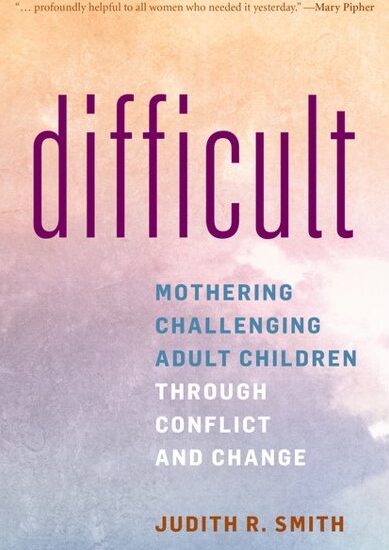
This week, 11 million Americans watched unemployed Mississippian Patrick walk away with the title of “The Biggest Loser” and $250,000 on the tenth season’s live finale.
Patrick’s win, like the $100,000 at-home prize for Mark, felt canned and dull.
The only spicy note in the unveiling of the victors was the tension between the two champs. Mark was one of two players this season, along with Jessie, who felt betrayed by Patrick’s cash-rules-everything-around-me vote to send them home. However, viewers were assured that they all love each other now. Phew!
Surprise! Both winning men were the final contestant weighed in their categories.
Surprise! Even though Patrick was one of three finalists, he was the only one who showed up with endorsement deal in hand and was allowed to promote it on air (Mind Stream Academy?).
Surprise! In last week’s episode, trainer Bob was in serious Patrick image-rehab mode, ensuring viewers forget our future champ’s shark-like game play. Foreshadowing!
Gushed Bob:
“I mean, I love Patrick. It makes sense that he has such good parents, because he is such a good man.”
Sweet, isn’t it?
Even without these clues, it is 100% unsurprising that a young (27) year old man with a lot of weight to lose (Patrick’s starting weight was 400) would win.
Just look at the overall weigh-in totals for the entire season. They weren’t provided by the show, but I have a calculator.
The average male contestant this season started at 393.3 pounds and lost 169.8 pounds over the season. That’s an average 43.3% weight loss. The average female started at 287.7 pounds and lost 82.6 pounds, 29.9% of her total weight.
The Biggest Loser won’t tell you this, but Weight Watchers and plenty of other sources will: men lose weight faster than women because of their body composition, and activity level. They are estimated to have a 5 – 10% inherent metabolic advantage.
Whatever a metabolic advantage is. When it comes to understanding the science of Biggest Loser weight loss, it’s anyone’s guess.
Last season’s winner, Mike, once lost 34 pounds in a week.
In terms of the way actual weight loss is scientifically understood, this is something of an impossibility – like bumblebees flying. (Although, actually, now scientists think they have that one figured out.)
To lose fat, a 34 pound loss requires a “calorie deficit” of 119,000 calories. To lose it in a week, Mike would need to not eat / burn an impossible 17,000 calories per day.
The show says it’s mostly done through exercise. Even taking into account his weight of 526 pounds, this chart says that Michael would need to run 12-minute miles for 8.7 hours/day. And consume no calories all week.
34 pound loss in a week doesn’t add up. Unless the Biggest Loser promotes severe dehydration to post big numbers, as Season 3’s Kai alleges on her blog. (This is also common practice among jockeys who are forced by cruel and arcane rules to “make weight” for races confirming their extreme low body weights.)
On the one hand, everyone is different. Our bodies are beautiful, complex, holy machines. And all we, and our health care providers, can do is describe what they are likely to do; rarely exactly what they will do.
(What bodies actually do during weight loss, as anyone who has ever dieted can attest, is baffling, exciting, frustrating, and flies in the face of the basic “rules.” )
On the other hand, I’ve come to believe that personal variation aside, viewers should know to watch the Biggest Loser cautiously for any real information about weight loss.
I’ve spent the last 5 weeks blogging about The Biggest Loser for the Center for Health, Media and Policy.
This health-related show is one of the most popular in the U.S. It represents a vast network of weight-loss and fitness merchandise, estimated at 100 million dollars a year of revenue.
But as we’ve covered these past few weeks, there’s a lot that’s missing.
Lack of specific information is a chronic problem on virtually every episode, from when/where and what the dieters eat, to the medical reasons that slower weight loss of no more than two pounds a week is widely considered much healthier.
Our posts have also addressed the growing evidence that while exercise provides huge health benefits, it simply can’t deliver the weight loss results previously thought. For even more on that, check this out.
I’ve written about why it’s not a great idea to run a marathon as an overweight novice with 6 weeks of prep, as contestants did last week. I explored how access to quality food is an issue of class.
Some commenters have taken exception to my negativity about the show. They’ve pointed out that I may be “missing for the forest for the trees.” I respect that perspective.
It’s true that Biggest Loser contestants lose vast weight without surgery or diet pills. Their health is certainly improved through the process. Perhaps my posts have been short-sighted, and overly critical.
Watching the finale, during the Daughtry-soaked opening montage, trainer Bob turns to a momentarily defeated Brendan, a special ed teacher from Boston (starting weight: 362; final weight: 245) and says to him, “I want you to forgive yourself.”
It’s a nice message, and the contestants do seem happier at the end; prouder of themselves. And perhaps through their “journeys” on the show, they are able to make some emotional changes for the better.
Of course, there’s a blindingly obvious reason that the contestants are so much happier at the end of the Biggest Loser. They’re skinnier, and they’re excited about it.
Watching the finale, though, I couldn’t help but notice that there’s something else, too. Here’s a selection of quotes from the finale:
From Bob: “They come in, and they’re broken, and they’re lost.”
From Ada, at starting weight 258: “I know for a fact that if I was thinner, I would be closer to my family and they’ll be proud of me.” (This clip was played twice during the finale.)
Ada at 159 pounds: “They’re so supportive now.”
Lisa, on losing 97 pounds to be a role model for her tween daughter: “I think that I am the best person for her to look up to now instead of the worst.”
Aaron, a man who started at 468 pounds and is the light of his son London’s eyes: “I just think about all the people who had faith in me, and how I let them down.”
Frado, a successful trader and the the backbone of his large Staten Island Italian-American family: “I’m not a burden any more.”
Next season’s contestant, police captain, husband, and father Dan Evans, “I am motivated by my son, Adam, who died… I am doing this today because I want to honor the memory of my son, because I have let him down by gaining this weight.”
Wait a minute.










Ben / December 16, 2010
You haven’t been too negative. You’ve been just negative enough. When this season started I got the strong feeling something was amiss.
Bob and Jillian’s yelling and the show’s smug attitutude in the first episode were a wake up call. I suddenly started looking at Biggest Loser in a whole new light. I realized this isn’t anyones definition of healthy weight loss. Dehumanizing and emasculating contestants isn’t “paying it forward.”
There is surprisingly little in the way of mainstream critisism if the show (save for a great NY Times article). So your blog has been a breath of fresh air–a rational voice amidst the surreal. Thank you.
/
tristinaaron / December 16, 2010
Thanks, Ben. That’s really encouraging.
Yeah, I never even really addressed “Paying it Forward” because it seemed there was so little to say. Wearing pink t shirts and having a Jonas brother talk about hunger for 15 seconds seems a little weak compared to what they could do for people with that platform.
Anyway, thanks for your thoughts.
Tristin
/
Diane / December 16, 2010
One of my pet hobbies lately has been reading up on The Biggest Loser, and I found one article that at least partially answers your question about crazy 34 pound weight losses in one week: http://www.fitcysters.com/group/biggest_loser/forum/topics/article-the-biggest-loser-2
Supposedly each “week” on the show is way more than an actual 7-day week. I haven’t found any other articles that can verify that information, nor can I get to the National Weight Science Foundation website to see the data that the article used. If it is true, then the actual weight loss is not so drastically out of the normal range as it seems… but maybe that makes it worse because the show isn’t being honest with its viewers and promises a completely unattainable goal.
/
Diane / December 16, 2010
Reading Kai’s blog now and other articles linked from it. Yup, it’s true, a “week” isn’t really a week.
Perfect. “Inspirational” amounts of weight loss in a completely fake amount of time. Way to be realistic, Biggest Loser.
/
Fred / April 18, 2011
“To lose fat, a 34 pound loss requires a “calorie deficit” of 119,000 calories. To lose it in a week, Mike would need to not eat / burn an impossible 17,000 calories per day.”
Obviously when someone loses 34 pounds it’s not all fat. The other major variable when you’re losing weight is how much muscle glycogen you have stored. You can carry about 2500 calories worth of glycogen (sugar used by your body) between your muscles and your liver. Each gram of glycogen binds roughly 3 grams of water in the body to enable its storage. My HS math teacher would be disappointed I’m not showing the work, but that is roughly a 5.5 lb difference between whether you are all glycogen and watered up or depleted.
People who have done diets with low carb days followed by a high carb day will already know all about this. If you have more muscle (which fat people often do given that they essentially walk around with weighted vests all the time – check out their calf muscles), then they’ll have extra room to store glycogen and swing up and down even more. Personally on “refeeding” days my weight has gone up something silly like 7 lbs. When that food is finished working its way out (gross), and I burn the glycogen stores and the water is released along with it, I’ll find I’m over a pound or two lighter than before my high calorie day…and my bodyfat measurements are lower.
Biggest Loser weigh ins are like roulette almost. Depending on your hydration and carb levels it can push your weight up or down 100% is my guess. And this is just one factor..hormone levels changing from medication, exercise and food intake can drastically change your resting metabolic rate too. Not even going to touch that one in this post.
/